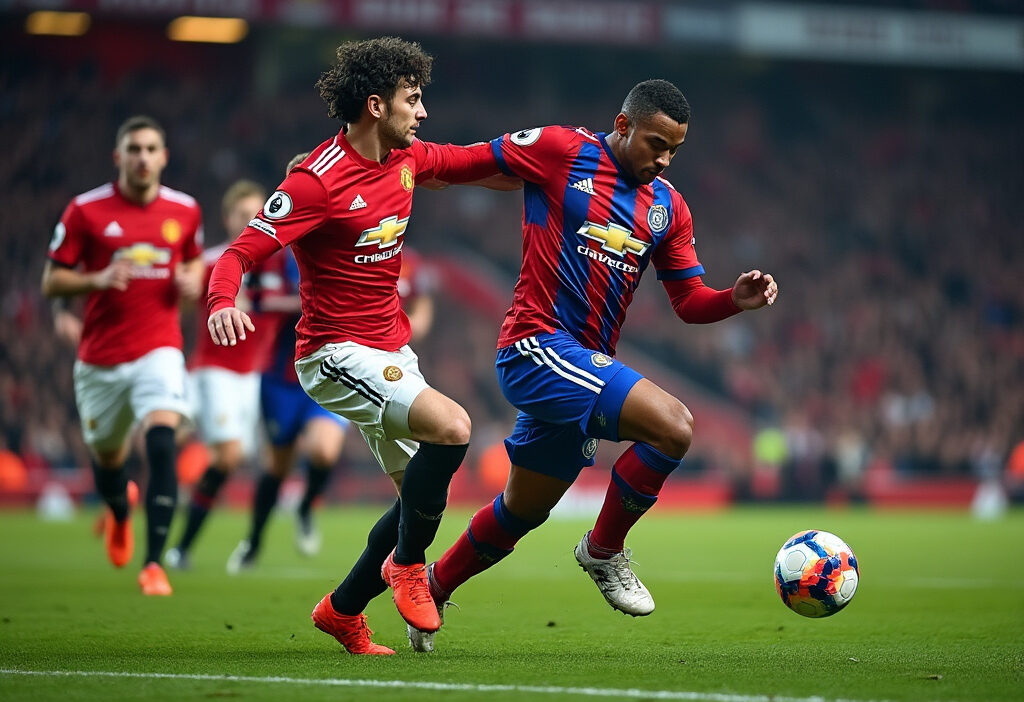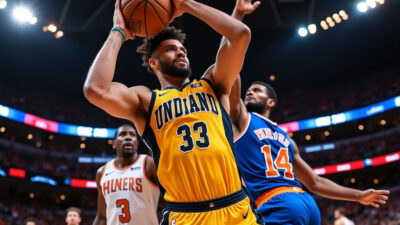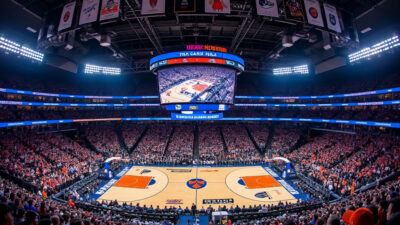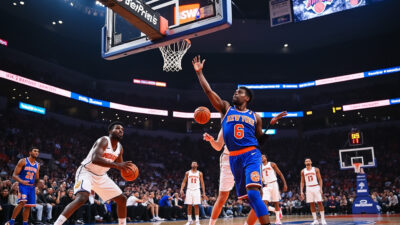Manchester United vs Lyon A Historic Football Rivalry
The football rivalry between Manchester United and Lyon has produced some unforgettable moments in European football history. From thrilling Champions League encounters to friendly matches that tested both teams’ mettle, this article delves deep into their storied past. We explore the key matches, standout players, and tactical battles that have defined this fascinating rivalry.
The Origins of Manchester United and Lyon
Manchester United and Lyon, though separated by geography and league traditions, share a rich history that began long before their first competitive clash. Manchester United, founded in 1878 as Newton Heath LYR Football Club, evolved into a global powerhouse under Sir Matt Busby’s visionary leadership in the mid-20th century. Their rise was cemented by the Busby Babes and later the treble-winning side of 1999, embodying attacking football and resilience.
Lyon, established in 1950, took longer to ascend but became France’s dominant force in the 2000s under Jean-Michel Aulas’ presidency. Their seven consecutive Ligue 1 titles (2002–2008) showcased a blend of homegrown talent like Karim Benzema and shrewd signings such as Juninho Pernambucano.
Their paths first crossed in European competitions during the 2000s, a period when both clubs were at their peak. The Champions League became the stage for their rivalry, with Lyon’s tactical discipline often testing United’s flair. These early encounters set the tone for a rivalry defined by contrasting styles—United’s English grit versus Lyon’s French finesse—laying the groundwork for unforgettable battles in the years to come.
Memorable Matches Between Manchester United and Lyon
Manchester United and Lyon have shared several unforgettable encounters, particularly in the Champions League, where their clashes have produced dramatic moments. One of the most memorable matches came in the 2007-08 Champions League group stage, where United edged Lyon 1-0 at Old Trafford thanks to a late strike from Carlos Tevez. The return leg in France ended 1-1, with Karim Benzema scoring for Lyon and Cristiano Ronaldo equalizing, ensuring United’s progression.
Another standout fixture was the 2004-05 Champions League Round of 16. Lyon stunned United with a 2-1 win at the Stade Gerland, with Juninho Pernambucano delivering a masterclass in midfield. The second leg at Old Trafford saw United fight back to a 2-1 victory, but Lyon advanced on away goals, marking a rare European exit for Sir Alex Ferguson’s side.
Friendly matches have also added to the rivalry. In a 2018 International Champions Cup clash, United triumphed 1-0 with Anthony Martial scoring against his former club, a poignant moment given his Lyon roots. These matches, filled with tension and brilliance, have cemented the rivalry’s place in football history.
Key Players in the Rivalry
The clashes between Manchester United and Lyon have been shaped by iconic players who left their mark on this rivalry. For Manchester United, Cristiano Ronaldo delivered unforgettable moments, including a stunning free-kick in the 2008 Champions League knockout stage. Wayne Rooney also stood out with his relentless energy and crucial goals, while Paul Scholes dictated play with his pinpoint passing. Defensively, Rio Ferdinand and Nemanja Vidić formed an impenetrable barrier against Lyon’s attacks.
Lyon’s legends, meanwhile, showcased French flair and resilience. Juninho Pernambucano tormented United with his lethal free-kicks and visionary playmaking. Karim Benzema, before his Real Madrid move, emerged as a thorn in United’s defense with his clinical finishing. Sidney Govou and Florent Malouda added pace and creativity on the wings, challenging United’s full-backs.
A unique subplot involves players who switched sides. Memphis Depay, after struggling at United, revived his career at Lyon, becoming their talisman. Eric Cantona, though not directly involved in this rivalry, remains a symbolic figure linking both clubs. These players didn’t just influence results—they embodied the spirit of their teams, turning each encounter into a battle of individual brilliance as much as collective strength.
Tactical Battles and Managerial Minds
The encounters between Manchester United and Lyon have often been defined by tactical ingenuity, with managers from both sides deploying distinct strategies to gain the upper hand. Sir Alex Ferguson’s United frequently relied on a high-pressing 4-4-2 or a fluid 4-3-3, using wingers like Cristiano Ronaldo to exploit Lyon’s full-backs. In contrast, Lyon under Gérard Houllier and later Claude Puel often opted for a compact 4-3-3, with Juninho pulling strings in midfield and quick transitions to catch United off-guard.
One standout tactical duel came in the 2007-08 Champions League, where Ferguson’s decision to deploy Wayne Rooney as a false nine disrupted Lyon’s defensive structure. Puel responded by instructing his midfield to cut passing lanes, but United’s relentless width and overlapping full-backs overwhelmed Lyon’s narrow setup.
Later meetings saw Louis van Gaal’s possession-heavy approach clash with Hubert Fournier’s counter-attacking Lyon, highlighting how managerial philosophies shaped outcomes. Whether it was United’s directness or Lyon’s calculated build-up, these matches were chess games where subtle adjustments—like a defensive midfielder dropping deeper or a winger tucking inside—often decided the result.
The Role of Fans and Atmosphere
The clashes between Manchester United and Lyon have always been electrified by the passion of their supporters, creating an atmosphere that transcends the tactical battles on the pitch. Old Trafford and the Groupama Stadium become cauldrons of noise, with fans playing a pivotal role in elevating these encounters into memorable spectacles.
Manchester United’s Stretford End is renowned for its unwavering support, and when Lyon visited, the chants of “Glory Glory Man United” reverberated with extra intensity. Conversely, Lyon’s Bad Gones brought their fiery Mediterranean spirit, turning away games into displays of unity and defiance. One iconic moment was in the 2008 Champions League clash, where United’s late winner sparked delirium, while Lyon’s fans responded with a spine-tingling rendition of their anthem, “Nous sommes les Gones”, despite the defeat.
Fan interactions have occasionally been heated, with both sets of supporters fueling the rivalry through banners, tifos, and relentless vocal backing. The mutual respect, however, shines through in moments like the applause for Cristiano Ronaldo’s return to Old Trafford in a Lyon shirt. These emotional undercurrents remind us that while tactics decide games, fans define the soul of the rivalry.
European Competitions and Their Impact
The encounters between Manchester United and Lyon in European competitions, particularly the Champions League, have added a layer of prestige to their rivalry. These matches have often been pivotal in defining both clubs’ continental ambitions. For Lyon, facing a giant like Manchester United was a chance to prove their growing stature in European football, while for United, these clashes were tests of their consistency against disciplined, tactically astute opponents.
The 2007-08 Champions League group stage stands out, where Lyon held United to a 1-1 draw at Old Trafford before narrowly losing 2-1 in the return fixture. These games showcased Lyon’s resilience and United’s determination to advance deep into the tournament—a campaign that ultimately ended with United lifting the trophy. Later meetings, like the 2022 preseason friendly, lacked competitive stakes but kept the connection alive.
European nights between these sides have also highlighted individual brilliance. Players like Cristiano Ronaldo and Karim Benzema used these fixtures as springboards to global recognition. The tactical battles, often decided by fine margins, underscored how European competitions magnified the significance of their rivalry beyond domestic contexts. These matches remain etched in memory as moments where legacy and ambition collided.
Transfer Histories Between the Clubs
The transfer history between Manchester United and Lyon has been relatively sparse, but a few notable moves have left their mark on both clubs. One of the most significant transfers was Eric Cantona, who joined Manchester United from Leeds in 1992 after a brief stint at Marseille—Lyon’s fierce rivals. While not a direct Lyon-to-United move, Cantona’s French roots and Lyon’s regional rivalry with Marseille added a layer of intrigue to his legacy.
More directly, Memphis Depay made the switch from PSV Eindhoven to Manchester United in 2015, but after struggling to adapt, he reignited his career at Lyon in 2017. His resurgence in Ligue 1 showcased Lyon’s ability to rehabilitate talent, while United’s loss became their gain. Another key figure was Michael Owen, who moved to United in 2009 after Lyon had shown interest—a missed opportunity for the French side.
These transfers highlight how Lyon has often served as a proving ground for players who either thrived or faltered at United. The clubs’ differing philosophies—United’s global star power versus Lyon’s focus on development—have shaped these moves, leaving lasting impacts on careers and team dynamics.
The Future of the Rivalry
The future of the rivalry between Manchester United and Lyon holds intriguing possibilities, shaped by the evolving dynamics of both clubs. Manchester United, under new ownership and management, is rebuilding with a mix of young talent and experienced stars, while Lyon, traditionally a hub for nurturing future stars, continues to balance competitiveness with financial pragmatism.
Key factors that could define their future encounters include:
- Squad development: United’s focus on high-profile signings contrasts with Lyon’s reliance on academy products, setting up clashes between established stars and emerging talents.
- European ambitions: Both clubs aim to return to the Champions League, where their paths could cross in group stages or knockout rounds, reigniting the rivalry.
- Tactical evolution: United’s attacking philosophy under Erik ten Hag may clash with Lyon’s adaptable, counter-pressing style, creating compelling tactical battles.
The rivalry could also be influenced by financial disparities, with United’s global revenue allowing deeper squad investments, while Lyon’s model hinges on player sales. However, Lyon’s knack for unearthing gems—like former United target Rayan Cherki—ensures they remain a threat.
As both clubs navigate their respective challenges, future matches could redefine this rivalry, blending nostalgia with fresh narratives, especially if they meet in high-stakes European competitions. The stage is set for a new chapter in their storied encounters.
Cultural and Economic Impacts
The rivalry between Manchester United and Lyon has transcended the pitch, leaving a lasting imprint on football culture and the global economy. Matches between these clubs have fueled a surge in merchandise sales, with jerseys, scarves, and memorabilia becoming coveted items among fans. The demand spikes whenever the teams meet, highlighting how high-profile clashes drive commercial success. Both clubs have leveraged their encounters to expand their global fanbases, particularly in emerging markets like Asia and North America, where their matches attract millions of viewers.
Culturally, these fixtures have become a bridge between English and French football traditions. The tactical battles—combining United’s attacking flair with Lyon’s technical finesse—have influenced coaching philosophies worldwide. Fan interactions, both in stadiums and online, have created a unique cross-border camaraderie, blending chants, rituals, and even culinary exchanges.
Economically, the rivalry has boosted tourism, with traveling supporters filling hotels and local businesses in Manchester and Lyon. Broadcast rights for their matches command premium fees, underscoring their commercial appeal. This rivalry isn’t just about goals; it’s a catalyst for cultural exchange and economic growth, proving how football can unite and energize communities beyond the 90 minutes.
Lessons from the Rivalry
The Manchester United vs Lyon rivalry offers valuable lessons for football fans and aspiring players, showcasing the essence of the sport beyond mere competition. Sportsmanship has been a defining trait, with players like Cristiano Ronaldo and Juninho Pernambucano exchanging mutual respect despite fierce battles. Their conduct reminds us that rivalry should elevate, not diminish, the spirit of the game.
Tactically, both clubs have demonstrated innovation. Lyon’s use of fluid midfield dynamics under Claude Puel challenged United’s structured approach, while Sir Alex Ferguson’s adaptability in European fixtures highlighted the importance of versatility. These encounters teach aspiring players and coaches that success often hinges on the ability to evolve under pressure.
The spirit of competition between the two clubs also underscores resilience. Lyon’s 2008 victory at Old Trafford proved that underdogs can triumph with belief and precision, while United’s comebacks emphasized mental fortitude. These moments serve as reminders that football is as much about mindset as it is about skill.
Ultimately, this rivalry exemplifies how respect, tactical ingenuity, and unwavering determination can shape legacies—lessons that resonate far beyond the pitch.
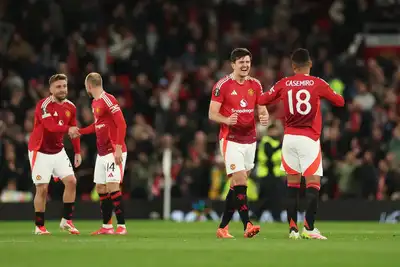
Conclusions
The rivalry between Manchester United and Lyon is a testament to the beauty of football, showcasing passion, skill, and unforgettable moments. From historic matches to legendary players, this rivalry has enriched European football. As both clubs continue to evolve, their encounters remain a highlight for fans worldwide, promising more drama and excitement in the years to come.
